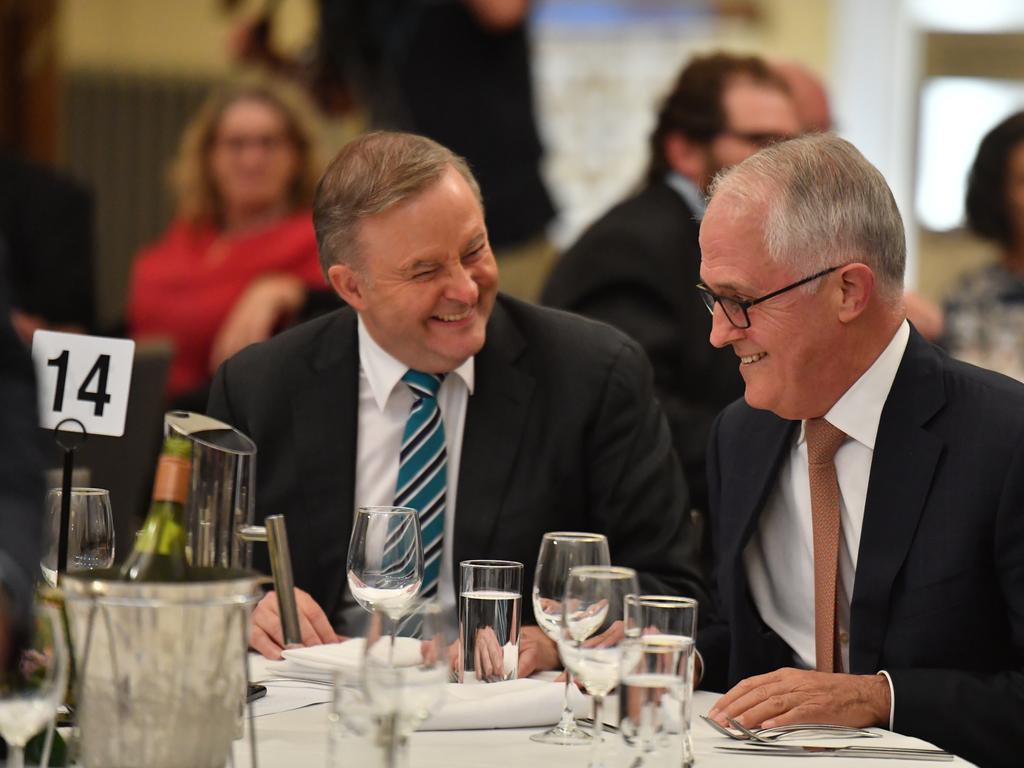
Last weekend he announced that he was pulling up stumps as chairman of the Australian Republic Movement. That’s not the surprise. The shock is that FitzSimons appears to have realised that when personality gets bigger than an idea, the latter suffers.
FitzSimons is a big personality. Announcing he was stepping down after seven years, FitzSimons said while he had been a “drum” for the ARM, “it is probably time for a flute”. The former Wallaby and commentator realised he “was never going to be the one to take it to a referendum”.
If this was his decision, hats off for that refreshing moment of humility. Whether he chose to leave or was pushed, FitzSimons needed to go to progress the republican cause. It is hard, then, to agree with ARM deputy chairwoman Meredith Doig that FitzSimons is “going out on a high”. Instead of using that propaganda in a headline, The Sydney Morning Herald could have picked something more discerning, like: “What Barbados did, Fitzy couldn’t”.
Looking at the most important key performance indicators, FitzSimons’s leadership of the ARM does not mark the high point of republicanism in Australia. Not where it counts.
National director Sandy Biar told The Australian that under FitzSimons membership of the ARM increased fourfold, with more than 10,000 members making annual contributions and about 35,000 active volunteers.
None of that can hide FitzSimons’s weak spot: while large swathes of the country in recent years have embraced a host of so-called progressive causes, most notably same-sex marriage, the spirit of republicanism has dimmed during his time as head of the ARM.
It is one thing to attend swanky dinners and be praised for your leadership by new Labor Prime Minister and republican Anthony Albanese, and to receive big dollar donations from billionaires such as James Packer.
It is another thing to convince a majority of Australians there is something sufficiently wrong with our system of government to warrant a major overhaul.
At the end of 2016, just as FitzSimons headed into his new role, polls suggested a surge in support for Australia to become a republic.
Celebrating the ARM’s 25th anniversary in December that year, FitzSimons said: “Every time an Australian republic is polled, support increases. This just shows that the more Australians hear about this nation-building reform, the more they like it.” That was not proved to be correct.
After many years of hearing about a republic from FitzSimons as ARM head, poll numbers in favour of a republic moved down, slightly up, then down again, never rising above those December 2016 numbers.
In any case, even high poll numbers do not signal success. Constitutional change requires a majority of voters in a majority of states. At the 1999 referendum, there was not majority support for a republic in any state.
As ARM chairman, FitzSimons doesn’t seem to have learned from the mistakes of his predecessors. In 2000, Michael Kirby, a monarchist and one of the founders of Australians for Constitutional Monarchy (before he became a High Court judge) set out 10 reasons the 1999 republic push failed. FitzSimons has repeated many of them, including what Kirby said of Paul Keating.
“Prime Minister Keating felt passionately about the republic,” Kirby wrote. “He also felt passionately about the political party which he led. He effectively claimed the republic for himself and for his party.” Though not a political leader, FitzSimons made a similar mistake as ARM head and the unofficial face of every lefty cause in the country.
Republicanism became about him and his politics. He and his politics were bigger than republicanism. To be sure, FitzSimons beat the republican drum, but not as much as he beat his own drum. In the end, his loud and politicised profile eclipsed the idea at the centre of the republican movement.
For so long as Fitzsimons was head of the ARM, there was a sense of dread among monarchists, and many republicans too, that the country would end up with someone kind of like him as president – loud, interfering, with a belief that their politics made them morally superior to the lumpenproletariat.
Remember when former ARM head Malcolm Turnbull described John Howard as “the man who broke the nation’s heart”. Those advocating for a republic ought to have learned that emotional blackmail remains a foolish way to try to convince people to alter a legal document that sets down how we are governed and by whom. It is a lesson not heeded by some voice advocates either. A few weeks ago, for example, Greg Craven announced that “Indigenous souls would be broken” unless the country votes yes to a separate race-based constitutionally enshrined voice. Patronising emotion is no substitute for clear-headed legal reasoning.
Under FitzSimons there remained a condescending, bullying sentiment to the republican cause. The idea that the nation is not whole, that we are not governed as we should be – by locals – for so long as there is a king as our head of state is nonsense. The King does not govern us. We govern us. Our system of constitutional monarchy has provided a stable system of government, exquisitely without intervention from queen or king.
The biggest danger to our independence is not that we have a king as our head of state. The biggest danger is that we are over-governed and dictated to by so many local finger-wagging busybodies: layers of government, a swath of unelected bureaucrats, hordes of meddling and influential fringe political players who buy policy with cash and brute political force, a moralising media and a handful of social engineering judges who imagine that their politics matter more than the law.
The prospect of a patronising, loudmouth political player taking up the role of president would be insufferable. Which is why a genuinely minimalist model with a president appointed with bipartisan parliamentary support might be more acceptable. It certainly beats the ARM’s backdoor direct-election model released in January under FitzSimons’s leadership.
While FitzSimons stepping down as ARM chairman may prove to be the best thing he did for the republican movement, his time there reminds us that there is every reason to recoil at the prospect of a polarising president who imagines that their position is so special as to warrant interference in our day-to-day affairs.








If you wait long enough, even the most predictable people can surprise. It has been a very long wait but Peter FitzSimons has finally surprised.